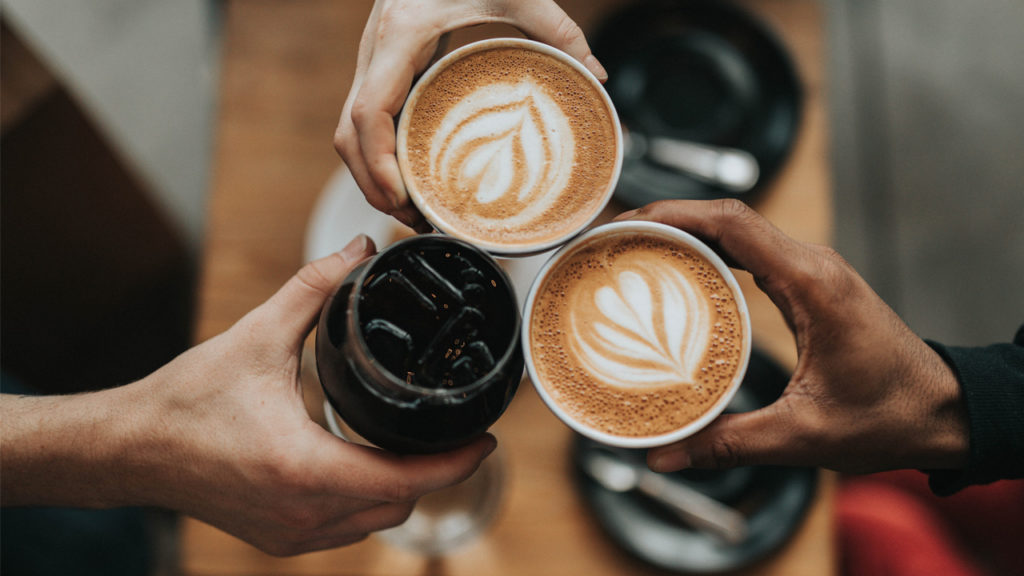We’re a nation of coffee lovers: 98 million cups consumed daily, yet only 7 percent is Fairtrade certified
As the nation continues to indulge in its coffee obsession, with a staggering 98 million cups consumed every single day, the Fairtrade Foundation reveals that only 7 percent of all coffee sold in the UK meets Fairtrade standards. These standards, which enable farmers to cover their costs, and build resilience against the looming threat of climate change, are a critical lifeline for coffee farmers worldwide.
In anticipation of International Coffee Day on 1st October, the Fairtrade Foundation is launching a campaign designed to engage and inform coffee lovers about the importance of fair prices for coffee. The campaign aims to safeguard the livelihoods of smallholder farmers while ensuring a sustainable supply of coffee for consumers back home.
The bitter truth is that the average non-Fairtrade coffee farmer lives on as little as £1.37 a day, has little negotiating power in coffee supply chains and yet bears most of the risk. The price farmers are paid fluctuates dramatically and has dipped this summer to below the cost of production.
Fairtrade safety net
Meanwhile the climate crisis is disrupting coffee production, reducing quality and yield, and increasing farming costs. More than 90% of Fairtrade Kenyan coffee farmers surveyed have already experiences the effects of climate change, citing erratic rainfall and an increase in pests and diseases. By 2050, places that have been cultivating coffee for decades may not have suitable conditions to grow the crop. Two countries – Brazil and Vietnam – where the UK sources over half (53%) of its coffee – are most affected.
Fairtrade has raised its Minimum Price for coffee to $1.80 per pound, considered the ‘safety net’ for farmers to help protect them from extreme drops in the market price and the intensifying impacts of climate change. Farmers also receive a $0.20 per pound Social Premium to invest in projects to improve productivity, climate adaptation, quality, infrastructure and basic community services identified as priorities by the farmers.
New data published today reveals when it comes to buying Fairtrade coffee, more than a quarter (26%) say cost is a deterrent. Additionally, 14% express concerns about the proliferation of sustainability labels, even though products displaying the Fairtrade logo must meet heavily scrutinised Fairtrade Standards, set by Fairtrade International. Another 10% of people say that their supermarket doesn’t stock Fairtrade products, while Fairtrade coffee is widely available and found in most retailers on the high street.
And while 32% prioritise price and taste (32%), 16% emphasise convenience above all else. Alarmingly, 14% admit that they rarely think about or are unaware of the price that coffee farmers receive for their products.
‘Wake up and smell the coffee’
Michael Gidney, CEO of the Fairtrade Foundation, said: ‘It’s time to wake up and smell the coffee. Too many farmers still reeling from the pandemic and the climate crisis now have to contend with market prices that have dropped below the cost of production. This is forcing farmers to make difficult choices. I’d encourage everyone to choose Fairtrade coffee, which offers farmers the safety net of the Fairtrade Minimum Price and Premium – and so much more.’
Fairtrade coffee farmer Gerardo Carvajal from Cooperative Manizales in Colombia said: ‘It’s very difficult to grow coffee now because rainfall patterns have changed and my farming costs and gone up. When production reduces, you lose income. Fairtrade gives me a safety net through the Minimum Price and Premium and the specialist training I receive from the Fairtrade producer network in Colombia.’
Longstanding Fairtrade ambassador Melissa Hemsley, a cookery writer, chef and sustainability expert who has visited coffee farmers in Kenya, commented: ‘Too many farmers struggle to put food on their tables while growing treats for us such as coffee. But we can change that through choices we make when we shop. That is why I am so proud to support Fairtrade. By buying Fairtrade I thrive, the families of the farmers who grow my coffee thrive and the land that supports their farms thrives too.
Dr Aaron P Davis, senior research leader of crops and global change at the Royal Botanic Gardens, Kew said: ‘If the coffee sector doesn’t adapt to the impact of the climate crisis, we’re going to have less coffee and prices will go up, but the real hit and the real jeopardy will be for farmers. An additional outcome of all this could be that the product in our coffee cups is transformed into something rather less desirable.’
-ENDS-
For more information about the campaign or to speak with a technical expert on coffee or a Fairtrade coffee farmer, contact martine.parry@fairtrade.org.uk.
Loosely edited rushes material shot to broadcast news standards is available here
Notes to Editors
The research for Fairtrade was carried out online by Opinion Matters between 08/09/2023 and 11/09/2023 amongst a panel resulting in 2006 nationally representative UK respondents, aged 16+. All research conducted adheres to the MRS Codes of Conduct (2019) in the UK and ICC/ESOMAR World Research Guidelines. Opinion Matters is registered with the Information Commissioner’s Office and is fully compliant with the General Data Protection Regulation (GDPR) and the Data Protection Act (2018).
